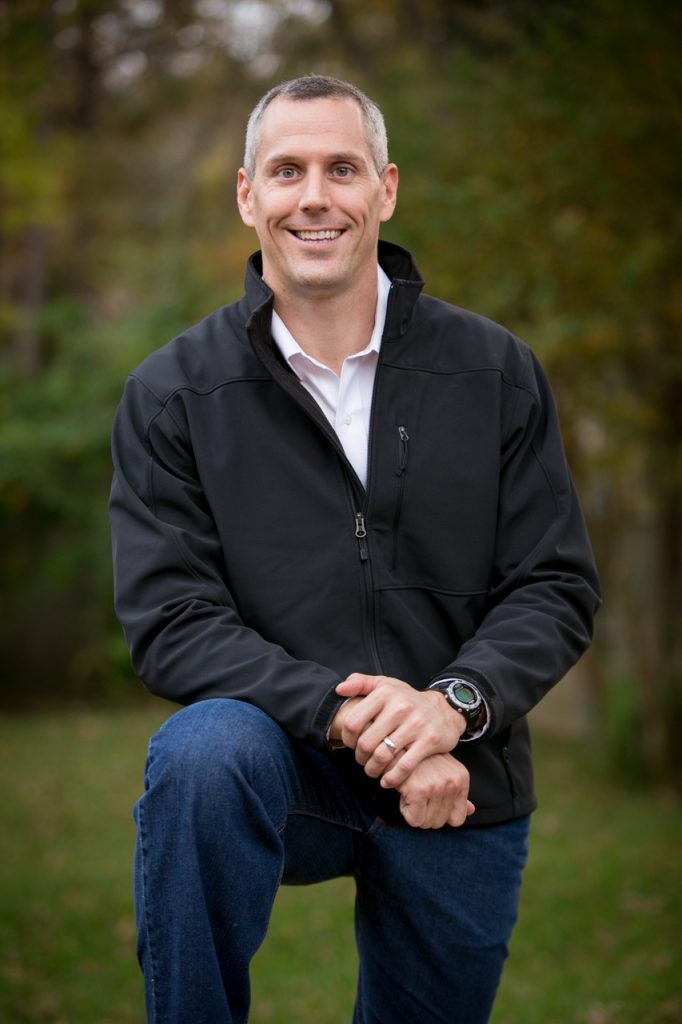
Incumbent Texas House District 6 Rep. Matt Schaefer’s seat has only been challenged three times in his term as representative — twice by libertarian candidates, and once by Rabbi Neal Katz as an independent. But for the first time since his election to the seat in 2012, Schaefer is facing a democratic challenger: Julie Gobble.
Currently, Schaefer serves on both the Appropriations and Higher Education committees in the House, and has a reputation for being consistently conservative — holding high marks with the National Rifle Association, Texans for Fiscal Responsibility, and Texas Right to Life. He also heads the Texas Freedom Caucus, a deeply libertarian-leaning group of Republicans in the House, and has defined himself as a “constitutionalist” who “errs on the side of freedom.”
But if re-elected, Schaefer would be taking the seat amid several crises for East Texans — a pandemic, an economic downturn, a mental health crisis epidemic and political redistricting. Right now, Schaefer says, his platform is running on “economic freedom.”
After a miscommunication in Schaefer’s campaign, he missed The Tyler Loop’s first requests for an interview. Later, Schaefer indicated he was open to an interview to talk about his platform in the upcoming election. Wallace and Schaefer’s conversation has been edited for length and clarity.
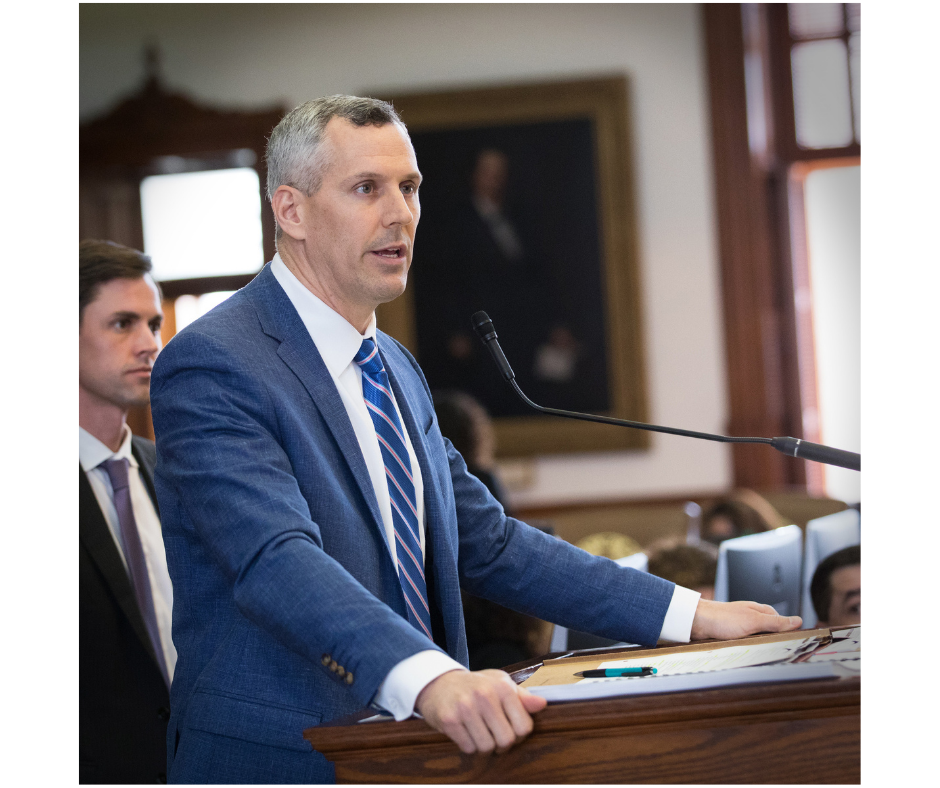
You’re now running for your fifth term as the Texas House District Six representative, and you’ve spent nearly a decade in the House. What drives you to continue running for reelection?
I think I’m in a position to have some influence on behalf of the people here in Smith County. I think that I still have the drive and the passion for the same issues that I ran on at the very beginning. I still have the energy to devote my best efforts to the job, and so that’s where we are.
I also think that this is a very important session historically, because of redistricting. And so having a more senior member in the legislature to help represent our community as the political lines are redrawn for East Texas is very important. Because of the population shifts, we’re likely to lose a state house member from East Texas.
Although our population has grown, it has not grown at the same rate as places like Collin County or Benton County or Harris County, et cetera. And so those urban areas will gain representation and force us to, you know, the larger geographic area in East Texas will lose a member, most likely.
Wow. I didn’t realize that. Would you mind talking a little bit more about what that redistricting process is going to look like and how you would help as a senior member?
The census is being completed this year, and so the Constitution requires us to then redraw the lines, not always for state Senate and state House, but also for the congressional lines.
There are aspects of redistricting that are basically, you’ve just got to follow the law and pay attention to the demographics of the people within the lines. But then there’s a portion of redistricting that ultimately is political as well. The Supreme Court in the past has acknowledged that.
I think that this area that I represent has historically had a representative here in this area as the anchor for this district, and it’s worked well for our community in the past. And so we just want to make sure that we have representation that is from around here. I know it would be unfortunate to have someone gerrymander us into East Dallas, which, you know, those types of things are not unthinkable.
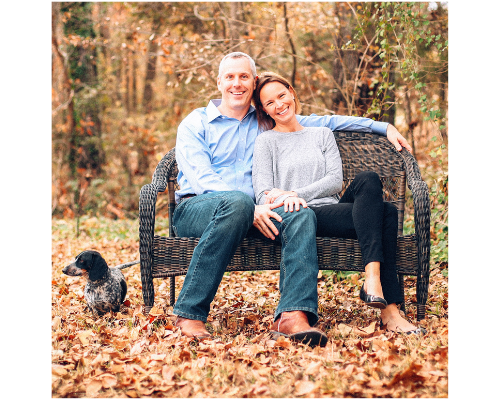
I’d love for you to talk to me about your platform. What do you believe matters most right now to your constituents?
I think economic freedom, from Main Street to the back roads where I grew up. I still believe in limited government. And I think that the pandemic has made people realize one, that the government can have at times too much power over their economic lives. Two, there were regulations that were in place that have been waived during COVID that people were wondering, “Why were they there to begin with?” So cutting red tape, keeping taxes low, keeping regulation light means businesses and families who are going to be able to grow and prosper.
And when that happens, that lifts all boats. That means our schools do better. Our nonprofits do better. Our churches and synagogues do better. It helps everybody when there is that freedom to grow and to find careers and jobs in our community.
Which regulations were you talking about specifically when you said that regulations had been “waived”?
One is some of the telehealth regulations.
There were a set of rules and restrictions in place that made telehealth more awkward and difficult that were waived because of COVID and people are saying, “Okay, wow, all right, it’s good for the medical community. More people are getting access quicker at times.” You know, there are limits to telehealth, but I think we’ve yet to really get our citizens to fully embrace it and see just how much benefit can come from that. That helps rural areas, that helps anybody who’s concerned about coming in. I mean, who wants to go sit in a lobby of a doctor’s office when everybody’s coughing and hacking, right?
Even under the normal flu season, you don’t like that. If you can get your 10-year-old son some help over the phone, why not — or through a video call. So there were some restrictions there that were lifted.
I think even some of the stuff dealing with alcohol. Why couldn’t you get a margarita to-go? Those types of things have got to be looked at to make sure that there’s a higher purpose in these regulations and not just because some special interest put them in place to benefit their operation.
Is there anything else in your platform that you really think is speaking to your constituents right now?
Well, there are core issues. I think the Second Amendment issue is always, in East Texas, still something very dear. The pro-life issue remains something that is very strong in this area.
If anybody knows me and the work I’ve done on public education, I have focused a lot on vocational training and restoring vocational training in our public schools. We’ve made progress. We’ve got a lot of work to do. Last session, I passed a bill to cut red tape so that public schools could teach plumbing in high school and it got passed all the way through the House, got to Senate, and plumbing unions from the urban areas killed it. Basically, they were able to defeat it in the Senate last session. Restoring vocational training, the skills that will be valuable in life and perhaps valuable in a career, can be taught at a much earlier age and available to more people to allow students to explore what might interest them.
Not everybody needs to go to college to be successful. College is certainly the best option for some students, but it is not the best option for a lot of students. And so we’ve got to make sure that students don’t feel like they’re second-rate because they choose to go get skills and training in a non-traditional university setting. We need to restore vocational training to a place of importance and respect in the eyes of our young people.

You’ve often talked about the Bible as a guide to your politics. You attend Green Acres Church here in Tyler. How does your religion inform your politics and actions as an elected official?
I think that when you read the Bible and it talks about justice, you see so much about how God wants us to act justly and love mercy in Micah 6:8, about standing up to the people who are voiceless, standing up for the poor, making sure that the foreigner is not exploited in your community. God-given rights to self-defense comes from the Bible. You know, there’s a lot of just basic, moral good that’s in the Bible that reflects well on how we should govern.
If you are reelected this year, you’d be entering office at frankly a very unprecedented time. The pandemic has killed over 15,000 Texans and left more than 3.6 million Texans unemployed and there’s still no sign of it stopping. So if you’re reelected, what steps are you going to take to help safely rehabilitate our region?
Well, it’s something that has consumed so much of my time, even in the interim. I mean, the numbers of conversations I’ve had with the leadership in our hospitals, with local doctors, with our public health officials, with our county judge, with the city councilmen and mayor, but also talking to businesses that have been devastated by this.
I mean, whether that be a hairdresser, someone who runs a cleaning business, a restaurant, a bar, a winery, a craft brewery — I think the role of state government going forward is three things: Provide the best medical guidance possible and get that out to the public. Get the best medical guidance out there that we have. Provide support to our medical community, and we’re doing that now. You see that the state is helping provide nurses for COVID care in our hospitals and provide resources to our community as needed. So it’s that guidance, it’s that support, it’s the resources. That’s the role going forward, and then let Texans decide how to move forward.
We’re going to have to look at the governor’s executive powers when it comes to emergency declarations. There’s a point at which the immediacy of a crisis has passed, and you have time to bring in the legislature who the people elected to make laws and to weigh in on what’s happening and get their approval or not. And our governor has stepped beyond that in several cases. I think that we’re going to have to look at reforming the executive power because we have to have checks and balances.
Were you among the legislators that did want to bring back an emergency session?
Absolutely, if for no other reason than the legislature is essentially not working right now. No committees are meeting. County government is meeting, city government is meeting, our school boards are meeting, but legislative committees are not meeting. Why? Because the rules that govern those meetings do not accommodate a COVID environment, do not allow for virtual meetings or adaptations needed to address COVID. But the governor refused to even call us into a two or three-day special session for the limited purposes of letting us adjust our rules so that the committees could work.
So we have a quarter of a trillion-dollar state budget, and we haven’t had an appropriations committee hearing since the legislative session in 2019.
If you are reelected, are you going to fight for those adaptations to allow for emergency sessions or virtual sessions if needed?
Absolutely. I think we’ve just got to embrace modern technology and provide the flexibility needed to make sure that the public can still be engaged fully in the process. That’s your number one priority, is to make sure the public is still fully engaged and there’s maximum transparency.

We’re also in the middle of a statewide conversation about racial equality. We’ve seen these conversations here in our own backyard with the Black Lives Matter protest and the fight to change the names of schools named after confederate generals and slaveholders. How are you talking with your constituents about this movement?
I’ve heard from a lot of people. I’ve talked to different members in the community about some of these issues. I have ongoing conversations with our law enforcement officials here about policing. And so, you gotta listen. That’s very important to understand what people are saying out there and what they’re feeling. Going forward, I think we’ve got to make sure that justice is the goal and accountability is the goal.
But you can’t have public safety without men and women willing to put on a badge and get out there and do what’s right. And we need the public to trust that. And we need to have men and women who are of the right temperament and the right mindset to do what is right when they’re out on the street. And I think that in our community, Smith County, the number of times that our police officers and deputies get it right so far outweighs any other situation that it’s really something to be proud of. It’s not to say that there’s never anything that takes place that shouldn’t be rectified, but I think we live in a community where if something crosses the line, we’re gonna correct it, and we’re going to hold those accountable who cross the line.
This is also a really great place for us to talk about changing demographics and Smith County because we had mentioned earlier about redistricting and about the census. With the census about to be completed, a lot of experts have predicted that Smith County is very quickly becoming a majority-minority area, especially in our urban areas. How do you think that’s going to change the way if you are reelected, that you either talk with your constituents or govern your constituents?
Well, I think that’s already taken place in our public school. I mean, Tyler ISD that’s already taken place, that shift. That’s one place where I spend a lot of time talking. I talked to our school officials on a weekly basis, particularly during COVID. So going forward, I think it’s just getting out there in the community as much as possible. There’s no magic to it. It’s showing up when you can and having relationships with people.
And how are you doing that right now? In the middle of a pandemic, how are you reaching out to your community members?
Well, a lot of them reach out to me. We have calls and meetings. I have a 100% meeting policy. I’ll be going to a minority coalition event this month. I’m reaching out. I’ve got a meeting set up with some African-American pastors from North Tyler in the near future. I’ve had a lot of conversations that I don’t publicize, I don’t need to. I just do the work, but when somebody calls my office, we just get the work done. We reach out to whoever needs help.
One of the things that’s part of your platform is that often you say, “Energy poverty equals poverty.” Can you tell me a little bit about how “affordable reliable energy ends poverty”?
Well, you can look around the world. Any country where you see mass poverty. You can go to parts of India that are still just now being electrified. Just look, go around the world. I was in Afghanistan where only a few select people had a generator and there was no electricity, and so the poverty was incredible. So really, if you don’t have energy to power factories and businesses and keep lights turned on — if you go to parts of the world that don’t have energy, you will see it. I mean, look at a picture of the Korean peninsula at night. Have you ever seen that? It’s almost like you can see exactly where the DMZ is, where Korea meets South Korea because South Korea is lit up and North Korea is not. They are energy poor. They are in energy poverty, and that hurts people.
And so there is a balance. We want cleaner, healthy, safer environments. I think that is something we should always be focused on but at the same time, we have human beings that need electricity. They need cooling and heating and they need jobs.
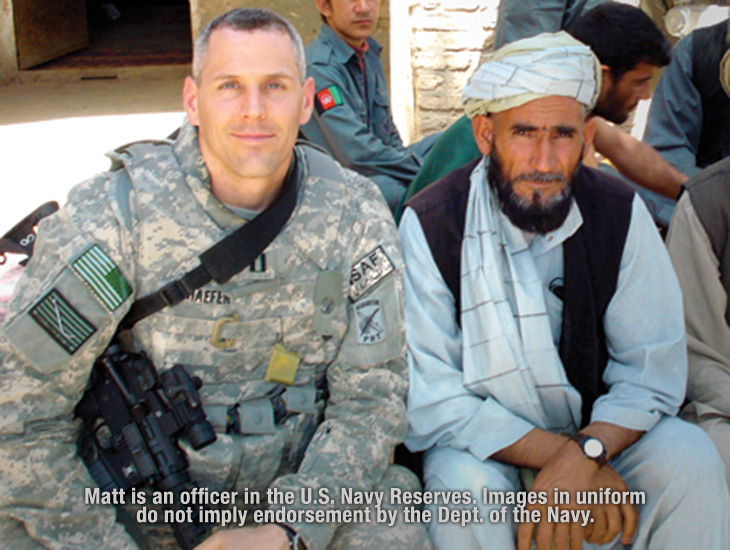
When you’re talking about this kind of energy, we’re talking about oil and gas, correct?
Well, I think it’s all of the above. I don’t think you should just focus on oil and gas. I think we need all of the above. We need solar, we need nuclear, we need wind, but the policies that go behind those need to be smart and not at the detriment of one or the other. You know, California is shutting down nuclear power plants. They’re restricting utilization of natural gas power plants. Natural gas is actually a very relatively clean energy source. It’s abundant, it’s cheap, and so we need to continue to use that.
I’m really glad that we’re talking about the environment because that is something that you’ve also said, that you believe that we should all be “good stewards of the earth,” which I know is again, something that is guided by the Bible. I’m curious, how are you planning on doing that if you’re reelected here in East Texas? We’ve had issues with our water supply, we are losing freshwater mussels, which clean our rivers, we are losing a lot of species here.
Well, I think we’ve taken some steps in the state of Texas to do that. I think you could look at what we did by putting a constitutional amendment forward for the citizens to dedicate a large amount of resources to the Texas Parks and Wildlife Department. That’s something that is very important. We have taken a big step in rejuvenating and restoring the public parks that are owned by the State of Texas that are owned by the citizens. It starts right there.
When you’re given healthy financial resources to the Parks and Wildlife department, you are doing two things. One, you’re revitalizing natural habitats with those resources. Two, you’re actually bringing Texans who may have lived their whole life in a concrete jungle out where they can appreciate and learn to love the natural environment around them.
I’d like us to talk about gun violence. After the Permian Basin shooting in August of last year, you did write a series of controversial tweets about the restrictions on gun ownership and red flag laws. But a poll done this year has found that many Texans are in favor of red flag laws and background checks. If you’re reelected, will you or revising your stance to be in line with the changing views of some of your constituents?
I don’t think that the views of the constituents line up the same way if you asked the question from a different angle. If you take background checks, for example — it sounds great. But then if you knew that that meant that every gun purchased would be controlled by the Bureau of Alcohol, Tobacco, and Firearms in Washington, D.C., where you don’t have any direct representation, how would you feel about that? Then they might say, “No, I’m kinda not okay with that.”
They probably think background checks are something that are just done by some people down in Austin that they might get to vote for. That’s not the case. If I told people in our community that earlier this year in 2020 at some of the gun stores in Tyler, Texas, unless you are one of the tiny percentage of our population that had a handgun license, you had to wait over 30 days because Washington was so screwed up and couldn’t get background checks processed.
[If] you wanted to walk in and buy a plain old shotgun or a pistol, you couldn’t do it. So ask them then if that’s okay, if that’s acceptable. Ask them if they understand the regulations that go into a federal firearms licensed dealer that can be subject to change by a bureaucrat in Washington. It’s different when you ask it a different way. Ask them if a red flag law is okay if you understand that there may not be due process for someone, that might make an accusation against someone that’s very difficult for them to overcome, to prove a negative and they have their guns taken away from them. Ask them if that’s okay. I think you’re talking also about constitutional rights. And so I don’t look at polls when I decide how to approach constitutional rights.
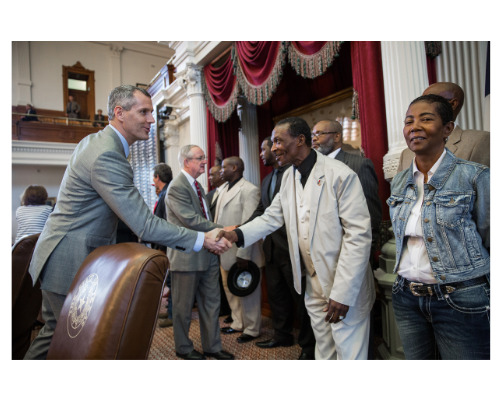
I think this is also a really good time to bring up the epidemic of mental health that we have here in Smith County. Out of the 25 most populated counties in Texas, Smith County ranks first in suicide rates. I think a lot of people in this area would say that these red flag laws could help prevent more suicides and could help us drop that rate. So what would you say to people who believe that?
Just show me the evidence.
You go to Japan and they have a culture over there. When they commit suicide, they jump off the buildings. I hate to be so blunt, but the human mind can take hold of a lot of ways to do harm if someone is intent upon it.
Now leaving guns out of the equation and just focusing specifically on mental health: If re-elected, do you have a plan to help with the extreme suicide rate that we have here in East Texas?
Well, I think a lot of that goes to things that the government cannot control. I think it’s our churches, it’s our families. It’s isolation, it’s social media I think is causing some people to be isolated and not have real human interactions. I’m not a psychologist. I don’t have all the answers, but I think government’s ability to impact this has a limit. What I have been focused on, where we’ve made some progress, when I listened to my sheriff and our local health officials that say, “Acute care beds, we need more acute care beds.”
And so that’s something we’ve been working on. We’ve put hundreds of millions of dollars into building new facilities so that we don’t have to send people all the way to South Texas to look for beds. We’ve got the new Rusk State Hospital that is underway, hopefully going to have more beds there. We’ve expanded beds out at UT Health. From a state resources perspective, we’ve got to make sure that the people that are in a crisis situation, that we have more beds available for them.
Your challenger, Julie Gobble, invited you to a series of televised debates back in August, but you did decline. You said that you were “working with hurting business owners to find policies that help them get fully open and back on their feet.” Would you mind telling me a little bit about the work you’ve been doing and why you did decline the debate series?
I wish I could show you the phone log of the number of business people and individuals that we’ve dealt with on COVID. I don’t know about people who were sitting at home watching Netflix during the pandemic. That’s not what me and my staff were doing. We were putting in countless hours. I even had my staff trained to take unemployment calls from the Texas Workforce Commission.
I have calls and talks on an almost just a weekly basis with people. I mean, I’m talking to hospital officials just into this last week about what we can do to ensure that additional nursing staff stays. I don’t have a list for you. I just can tell you that there’s a lot of people in this community, I guarantee, who have had a lot of conversations with me and those are ongoing. We get calls all the time from businesses that have been hurting, people who are worried about their loved ones in nursing homes, people are worried about a child who’s in a children’s hospital in Dallas, both parents can’t get in. I mean, it’s not just businesses. It’s all these innumerable dominoes falling from COVID.
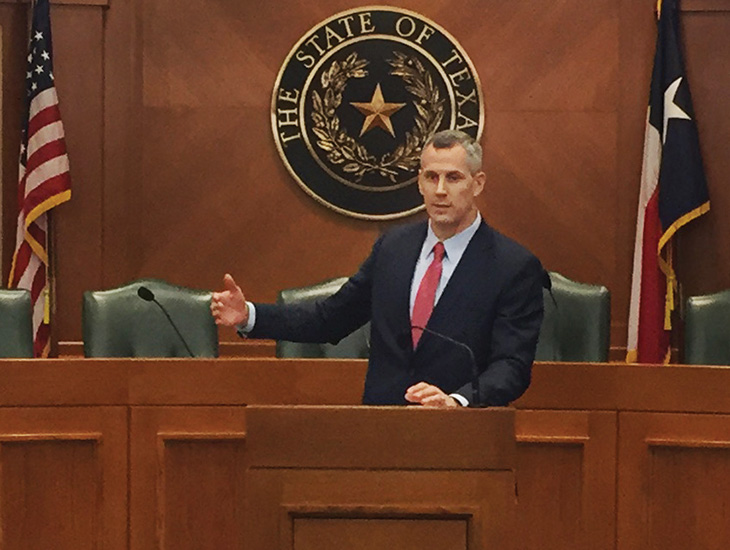
I’m going to push a little bit back on that question because Julia Gobble did say in an interview with The Tyler Loop that not having the opportunity to debate feels like “the antithesis of what a democratic government is supposed to look like.” What would you say to her and other people who believe that?
I think Julie Gobble has the ability to get out and get her message heard as well as anybody. No one’s stopping her from putting her message out.
Is there anything else that I didn’t ask you that you would want people to know about you or your campaign?
Well, let me tell you this. I can put up a post on Facebook about the work I did on teacher pay for last session or the work I did to ensure that we got special funding for Rose City summer camps, and it’ll get like 15 likes in two days. I can put something up about a controversial issue and it goes crazy.
The people that know me and that work with me know that I spend a lot of time working on nuts and bolts issues. I get excited about how we could get students to learn plumbing in high school. You know, those types of things motivate me on a day to day basis. Other things grab headlines.
Love what you're seeing in our posts? Help power our local, nonprofit journalism platform — from in-depth reads, to freelance training, to COVID Stories videos, to intimate portraits of East Texans through storytelling.
Our readers have told us they want to better understand this place we all call home, from Tyler's north-south divide to our city's changing demographics. What systemic issues need attention? What are are greatest concerns and hopes? What matters most to Tylerites and East Texans?
Help us create more informed, more connected, more engaged Tyler. Help us continue providing no paywall, free access posts. Become a member today. Your $15/month contribution drives our work.







